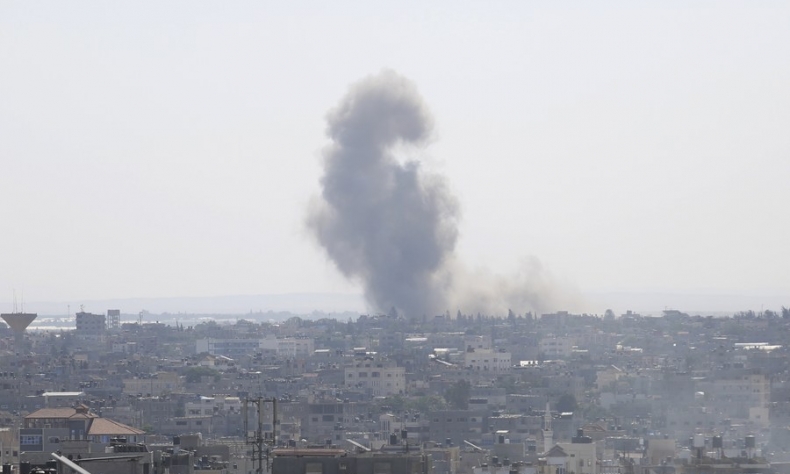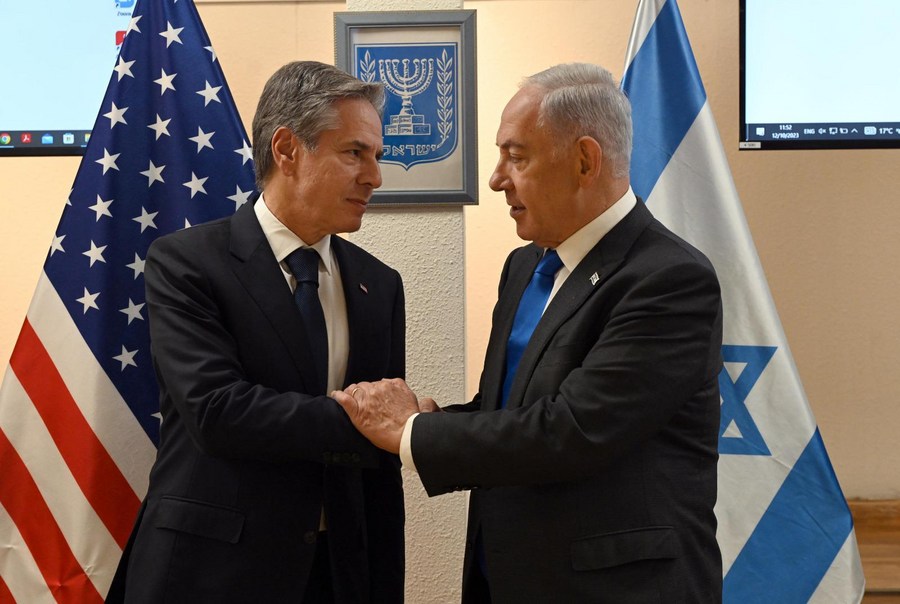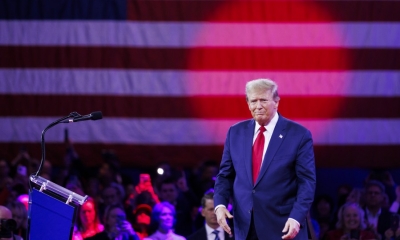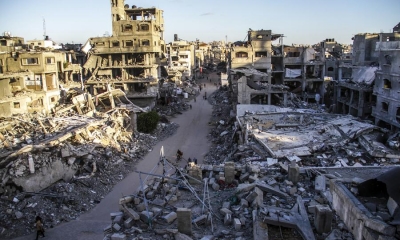Palestine-Israel Conflict and the Middle East Crisis

Today, the international community must insist on an immediate ceasefire and on the resumption of various elements of a diplomatic peace process resulting in a just settlement of the Palestine Question.
With humanity facing an explosive crisis in the Middle East, China’s principled position on the Palestine Question is welcome. Western imperialism, on the other hand, aids and abets the decade’s long harsh Israeli treatment of Gaza as an open-air prison.
China calls for fairness and justice in the international system. Chinese Foreign Minister Wang Yi has said that “Israel’s actions have gone beyond self-defense.” Further, he said that “Israel should seriously heed the calls of the international community and the UN Secretary General and stop collectively punishing the residents of the Gaza strip.”
Beijing has consistently called for the implementation of UN resolutions for the establishment of a fully sovereign Palestinian state with pre-1967 borders. This formula for peace is known as the “Two State Solution” to the complex historic Palestine Question.
An alternate “One State Solution” as been proposed in the past and calls for all living in the historic Palestine region to live together in peace under one roof. However, the Two-State Solution appears to be more practical. Idealistically, some suggest that in the far future two states coexisting side by side could decide to federate into a “Holy Land State”. The main point, however, is that through diplomacy a just solution must be found.
Persistence of Western imperialism
Today’s situation in Palestine is rooted in 19th century Western imperialism. Diplomatic historian Rene Albrecht-Carrie once said of the Middle East, “The Eastern Question is a hardy perennial which, in changing shape, appears throughout the nineteenth and twentieth centuries.” And here we are today in the 21st century.
It is well known that the British Empire for geopolitical reasons facilitated the formation of a Zionist entity in historic Palestine in the early 20th century. After World War II, the United States owing to domestic politics became the main patron of the newly established state of Israel. Thus, today’s Israel is an Anglo-American creation.

As Israel is an Anglo-American creation, the United Kingdom and the United States should be at the forefront of a Two-State Solution to the ongoing crises in historic Palestine. They should advocate for the search for peace and stability in the Middle East and should take a leading role in implementing UN Security Council and General Assembly resolutions on the Palestine Question.
But the opposite is the case. Domestic politics in both the United Kingdom and the United States precludes a constructive role in resolving the Palestine Question.
While the West has been dominant in the international system for some five centuries, the era of Western colonialism is coming to an end. A new correlation of forces with a multipolar dimension is making its way into the world historical process. Inevitably, Western neocolonialism will be rolled back and this will open the way for the construction of a more just and fair international system based on international law with a reformed United Nations, and other organizations, playing an important role.
Political Zionism and Western policy
The views of extremist political Zionists have long posed a threat to a peaceful solution of the Palestine Question. Political extremism whether Jewish, Christian, or Muslim interferes with and delays a peaceful diplomatic resolution. Such extremism is an obstacle to a just and comprehensive solution to the Arab-Israeli conflict generally and to the Palestine Question in particular.
George Antonius once noted the difficulty posed for the resolution of the matter. “The passions aroused by Palestine,” he said, “have done so much to obscure the truth that the facts have become enveloped in a mist of sentiment, legend, and propaganda, which acts as a smoke-screen of almost impenetrable density.”

American political scientist Earl Huff pointed out that Zionism “is a complex of beliefs aimed at the promotion of a Jewish nation-state in accordance with the Basel Program of 1897.” Further, he said, “A Zionist can be defined simply as anyone who regularly, consciously, and actively promotes the aims of Zionism.”
It is important to note that not all in the American Jewish community support political Zionism. Thus, there has been, and is today, strong opposition both in secular and in religious circles to the harsh treatment of Palestinians by the Israeli government.
Contemporary politics in the United States, however, precludes peace and regional stability in the Middle East. Short sighted and misguided geopolitical concepts are a fundamental problem. But, aside from such confused foreign policy thinking, and nostalgia for the ways of the British Empire, the pro-Israel lobby plays the key role in policy and politics, especially in the United States.
Washington’s dark crusade
While the pro-Israel lobby draws its strength from an influential section of the American Jewish community another powerful pro-Israel element in American politics sways Washington’s policy. This is the phenomenon of “Christian Zionism” which is not well known.
Although outside of the mainstream Christian denominations, and deemed heretical, Christian Zionism is an influential factor in U.S. Middle East policy. Significant portions of Christian Fundamentalist voters are under the influence of Christian Zionist ideology and so they support political Zionism in the Middle East.
Today, many in the Arab and Muslim world believe that the U.S., influenced by Christian Zionism and encouraged by Israel, has launched a dark crusade to dominate the region and its hydrocarbon resources.

The pro-Israel lobby demonstrates how a highly organized and successful interest group, albeit one comprising different factions, operates within the pluralist American democratic system.
Christian Zionism, given its millions of devotees and its political influence, poses a structural political challenge to the American constitutional order, as well as to a just and peaceful international order. It is bipartisan: both major political parties in the U.S. have been penetrated by, and are subject to, the political influence of the well-organized and well-financed Christian Zionist lobby.
Biden continues the dark crusade
President Joe Biden continues Washington’s dark crusade in the Middle East. Christian Zionists and the pro-Israel lobby are not concerned that their undue influence over American foreign policy has mired the U.S. in costly wars. Many military, diplomatic, and intelligence professionals say such wars cannot be “won” through military force.
Despite the massive cost of the Iraq and Afghan wars, said to approach 8 trillion dollars, the pro-Israel lobby demands support for Israel in the present crisis. The support demanded includes a possible war against Iran.
In my book, Dark Crusade (London:2009), I maintained that the U.S. “is on an inevitable collision course with Russia, the Arab and Muslim world, and China.” I pointed out that that Washington’s war hawks have recast the 19th century Great Game between the British and Russian empires into a 21st century struggle between the U.S. and the adversaries of Russia, Iran, and China.
The historical record shows that for a century and a half Christian Zionism has insidiously twisted the American republic’s traditional values of faith, hope, and charity into delusion, fear, and war.
Today, the international community must insist on an immediate ceasefire and on the resumption of various elements of a diplomatic peace process resulting in a just settlement of the Palestine Question.
The article reflects the author’s opinions, and not necessarily the views of China Focus.
 Facebook
Facebook
 Twitter
Twitter
 Linkedin
Linkedin
 Google +
Google +







